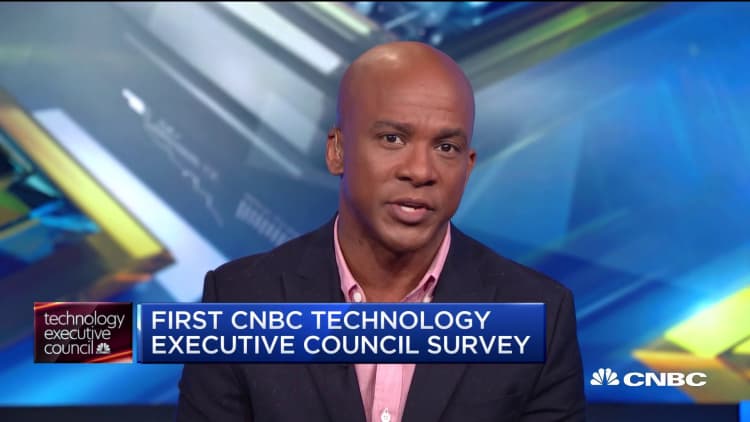When you think of the future of work, what do you imagine?
Whether your workplace is a hospital or a construction site, technology will shape its future for decades to come. That's no longer debatable. The question is, how will companies harness technology to benefit employees and ultimately customers and owners.
Across industries, technologies such as artificial intelligence and robotics have the potential to make work a more efficient and productive place and power a transformation like we have never seen. While the change will be gradual — most change is — all businesses must get prepared now.
What we're first likely to see is worker/machine co-existence. According to a McKinsey report, even though 10 to 25 percent of work done in banks will be automated in the next few years, most work will require humans and machines learning to work together. And organizations need to get their employees ready for these bot-coworkers.
Two job trends are developing. One is the concentration of job growth expected in certain positions, such as software developers, computer systems analysts, and product managers. Secondly, there will be a renewed importance in workers having core competencies: adaptability, creativity, skills agility, and problem-solving. As reported by the World Economic Forum, it is these skills which best prepare people for an evolving and dynamic workplace. In the future, companies won't want one skillset or another; they'll want all of them.
To adequately prepare, leaders and their employees need to focus on three things: an open mindset, lifelong learning, and recruiting employees that have new skills.
Open mindset
While institutional change is typically gradual, resistance to any change is common.
Employers must help their employees adapt — it's not enough to announce that the company is shifting to an agile mindset, for example. Responsible employers will help employees understand and feel comfortable with changing roles, different types of meetings, and faster deadlines.
Employees meanwhile need to be open to that change and adapt to the fact that technology will permeate every company, and every job. Whether working in human resources, the legal department, or finance, it will be critical for each employee to be open to pivoting and transforming — possessing a fail-fast mentality.
Develop lifelong learning
Employees are the backbone of any company; employers set the tone and create an atmosphere where people can succeed. It's a symbiotic relationship. So it's one thing for employees to adopt an open mindset, it's another to demonstrate the willingness to retrain and learn new skills — something that arguably is not easy to do once we're adults. To accomplish that, employees need leaders to give them the opportunity and encouragement.
For example, skilled customer service representatives can be tapped to train machines to undertake the repetitive, time-consuming parts of their jobs, freeing them up to dedicate themselves to more complicated parts of the job that a machine can't do, tasks that require a human connection.
That's not to say that the transition to a human/machine workforce is easy or without challenges. We should expect those, even if we don't know exactly what they'll be. It is the job of senior leadership to create a strategy for that inclusive future.
Recruiting for new skills
The increase in the importance of technology in the workplace does not mean that companies will only need to hire those with technology skills. A student with a computer science degree will continue to be valuable, but equally important will be someone with a background in design, human resources, or behavioral science.
In the future, as we look at the collaboration of machines and people, soft skills like teaming, the ability to collaborate, having empathy, being creative will be key to any organization, and even grow in importance.
The future of work will be won by those employers who are helping employees shift their mindsets — proving through learning and training and recruiting for new skills that their employees matter.
The good news is that the future of work is not a zero-sum game. One person's success won't mean less opportunity for others to shine. Companies will only succeed when people are working together. Collaboration and teamwork will become even more important and as this happens, productivity will increase. It's not that everyone's slice of the pie will get smaller, but rather, the pie will get bigger.
—By Carol Juel, executive vice president and chief information officer of Synchrony. Juel is a member of the CNBC Technology Executive Council






